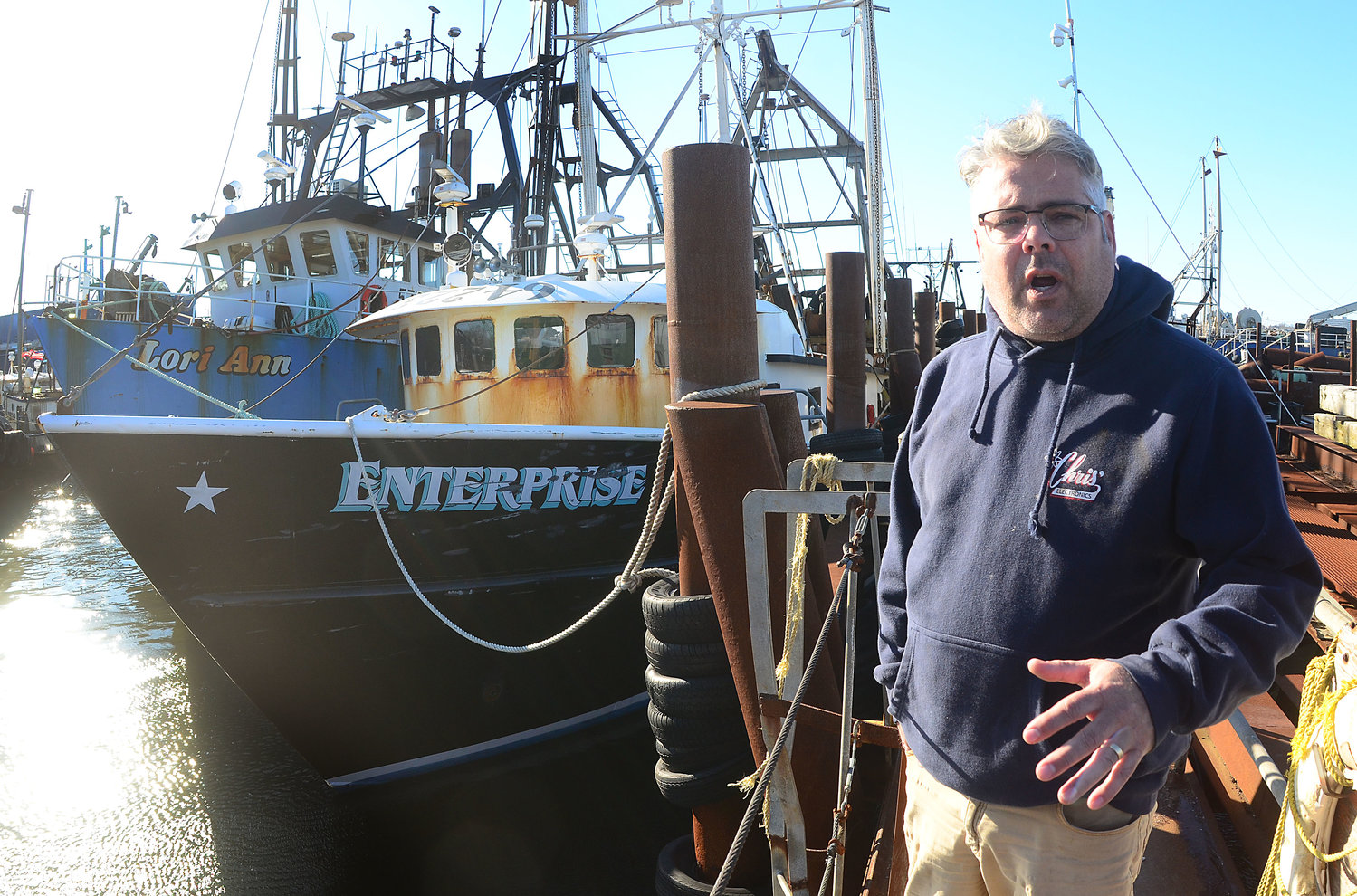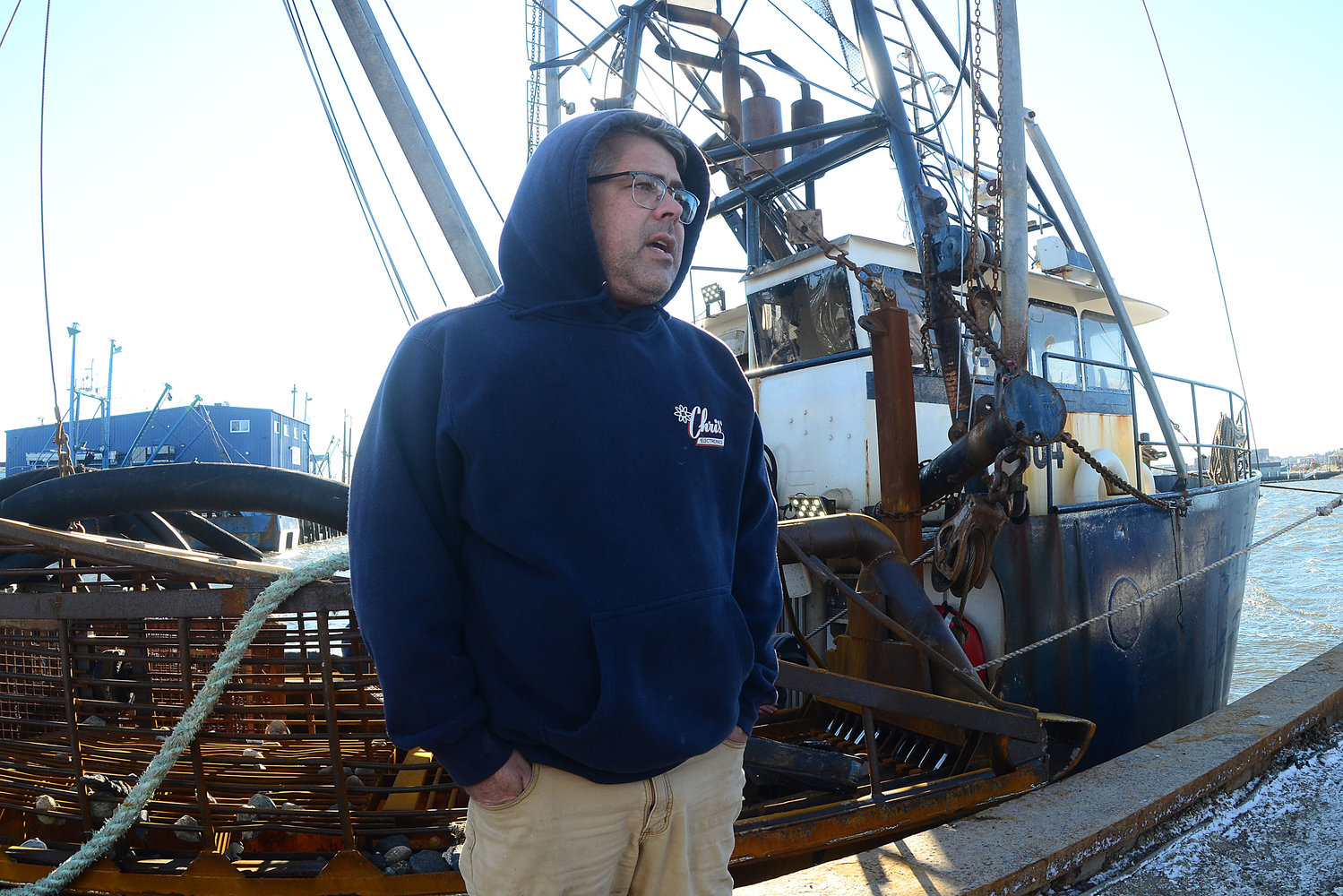Bristol employer faces threat from new fisheries regulation
Controversial ruling on Atlantic fishing grounds will jeopardize future of large Bristol employer
The New England Marine Fisheries Council’s decision to close a large portion of Nantucket Shoals, a prime surf clam fishing area, will have a major impact on businesses both across the region …
This item is available in full to subscribers.
Please log in to continue |
Register to post eventsIf you'd like to post an event to our calendar, you can create a free account by clicking here. Note that free accounts do not have access to our subscriber-only content. |
Day pass subscribers
Are you a day pass subscriber who needs to log in? Click here to continue.
Bristol employer faces threat from new fisheries regulation
Controversial ruling on Atlantic fishing grounds will jeopardize future of large Bristol employer
The New England Marine Fisheries Council’s decision to close a large portion of Nantucket Shoals, a prime surf clam fishing area, will have a major impact on businesses both across the region and here in Bristol.
“This is going to have a significant impact on our industry, and a huge impact on Galilean,” said Chris Shriver, general manager for the clam division of Atlantic Capes Fisheries. ACF is the parent company of Galilean Seafood, the clam processing facility and wholesale distributor on Broad Common Road that employs about 120 people.
“If we can’t harvest, it is going to reduce the volume going through the plant.”
Mr. Shriver is referring to the New England Marine Fisheries Council’s (NEMFC) Dec. 4 decision to close 80 percent of Nantucket Shoals to the hydraulic water-pressure dredging gear used by commercial surf clammers.
Nantucket Shoals is an area of the Atlantic as shallow as three feet in some places, that extends from Nantucket eastward for 23 miles and southeastward for 40 miles. Near a major transatlantic shipping lane, the shoals are a well-known navigational hazard as well as a prolific fishing and shellfishing ground.
Part of its Omnibus 2 Essential Fish Habitat Amendment, the fisheries council designated the Great South Channel Habitat Management Area early in 2018, though they initially gave the clammers a one-year extension, set to expire April 9, 2019, to continue fishing the area. The Dec. 4 decision closes the area, known as Rose and Crown and Zone D, a move that designates the full area as an essential fish habitat.
The fisheries council’s decision to take no further action allows the exemption to lapse. The surf clam industry was angling for a second option, which would have established five exemption areas in which clam and mussel dredging would be allowed for five years to give researchers and fisheries managers time to collect data to determine whether the area should be designated an essential fish habitat.
A $200 million industry
According to the fisheries council’s data, their decision will have a $6 million impact on 13 ports in Barnstable County, New Bedford, and Fairhaven, Mass.
Most in the industry would put a much higher cost on the decision. In a letter to the editor of South Coast Today, Allen Rencurrel, owner and president of Nantucket Sound Seafood, claimed that “our fishery in these treacherous local waters grosses $10 million per year to the dozen or so boats and their crews, and multiples more to the South Coast fishing economy … New Bedford, Fall River, Gloucester, and Bristol, R.I., families stand to lose hundreds of jobs.”
Other industry insiders estimate potential losses of gross revenue in the tens of millions. The reality is, the surf clam fishery is a $200 million industry with about 500 jobs, almost all in New England.
Bristol represented at meeting
Though the fisheries council did not mention any impact outside of Massachusetts, Bristol Town Administrator Steven Contente and Bristol Town Council President Nathan Calouro attended the Dec. 4 meeting at the Viking Hotel in Newport to correct that misconception. Mr. Contente testified to the assembly.
“There was a lot of testimony on the impact on communities like New Bedford and Gloucester, but it’s further reaching than that,” said Mr. Contente. “I testified about the economic impact on Bristol.”
“The loss of jobs at that facility would have a ripple effect from the services their employees use to other businesses, like local fabricators, that Galilean would use,” said Mr. Contente. “Water is one example. They are one of the largest purchasers of water in the area, and since delivery and infrastructure costs are fixed, it is important to keep industry buying water, so those fixed costs aren’t passed on to the individual consumer.
“I can’t speak to whatever environmental reasoning they had behind this decision. I want a sustainable fishery, but they need to know, there is a big impact.”
One man who is happy to speak to the environmental reasoning of the fisheries council is Chad Brayton, vessel manager for Atlantic Capes in Fairhaven, where he oversees a fleet of six clam boats. A lifelong fisherman — this is his first “land job” — Mr. Brayton said there was no reasoning at all.
“It was completely unscientific. They just sent some drop cameras down, saw rocks, and called it habitat.” At one of the meetings leading up to the vote, Mr. Brayton claims he counted over 100 uses of the word “assume” or “assumption” by speakers making claims about the environmental impact of surf clamming on the shoals.
Mr. Brayton is also not happy with the council’s “compromise,” in which they are permitting a small portion of beds to remain open, allowing the clam industry to conduct self-financed research to prove that the areas are not essential fish habitat.
“They’re saying, ‘we think we know what your fishery does, we think we know what this area is, and we’re kicking you out, but here’s a little slice of the grounds so you can prove that you aren’t doing it?’ It’s all backwards. It’s all political.”
Council admits it does not know
Don’t dismiss Mr. Brayton’s opinion as the bias of a man whose job may be in jeopardy — his low opinion of the science behind this decision is corroborated by a very unexpected source: the New England Marine Fisheries Council itself. The council essentially admitted that it based its decision on anecdotal evidence and not scientific data — data which has not been gathered in part due to one critical problem: NOAA’s own research vessel, Bigelow, can’t navigate the shallows of Nantucket shoals.
Before the vote, Mike Pentony, administrator of NOAA’s Greater Atlantic Regional Office, said, “We know we don’t have a complete analysis here today … There are some things with Alternative 2 that give us significant pause.”
What’s more, the fisheries council based its findings on research done by Kevin Stokesbury of UMass Dartmouth, who himself has said that his work, done years ago for the scallop industry, should not be applied to the surf clam fishery. Mr. Stokesbury told The Standard Times of New Bedford that his research “is insufficient for the clamming industry since the images of the ocean floor are about a kilometer apart and clammers often dredge in much shorter distance.”
Speaking to the Gloucester Daily Times, Monte Rome, owner of Gloucester-based Intershell Seafood, stated the case that the area in question is not the rocky-bottomed preferred habitat of fish: “You don’t catch clams on a rocky bottom,” said Mr. Rome. “Clams grow in sand, sandy gravel and fine sand. The best evidence that it is not an essential fish habitat is that there are clams there.”
What’s next for the industry?
Moving forward, there are really only three options for the industry, all of which have significant drawbacks. They can continue to clam in the smaller areas of Nantucket Shoals that remain open to them, though with the dramatic increase of pressure on the resource in those areas, clammers expect the areas to be decimated within a year.
They can clam in Massachusetts inshore waters, but volume of resource may not be there to make it economically feasible.
They can also go out to Georges Banks, but clams from that area have been found to contain the dinoflagellate algae that produces toxins that cause Paralytic shellfish poisoning (PSP), a rare but serious illness. Though it has been several years since the algae was detected, all shellfish caught in that region must undergo a rigorous testing protocol.
Any Atlantic Capes plan to bring Georges Banks clams to port would necessitate developing onshore testing protocols and perhaps moving their fleet to a Rhode Island port. There is also the matter of the time required to do the necessary lab work to test for PSP.
“The business we are in depends on fresh product,” said Mr. Shriver, of Galilean here in Bristol. “We can’t have our clams quarantined for days.”
Still, Mr. Shriver remains hopeful they will find a solution that will allow Galilean Seafood to survive the transition.”Nothing is insurmountable,” he said.
In Fairhaven, surveying his fleet grounded by high winds on a frigid December afternoon, Mr. Brayon had a different outlook.”
“It’s bleak. Very bleak.”










